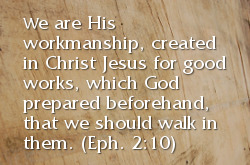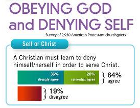"A Heaven in a Wildflower" - Discipling Children through Awe

It was one of those moments when I didn’t know whether to laugh or cry. So I opted to just shrink lower into our second-row pew, stifle my giggles, and hold my seven year-old son close, thanking God for him and all his glorious honesty.
If you are a regular reader, you know that my husband pastors a rural church; and while we do our best to keep our kids out of the fishbowl, we do expect them to participate in the full-scope of congregational life. Including our mid-week service. This isn’t usually a problem, but like all of us, there are those days when they’d rather stay home. Perhaps they’re tired, busy doing other things, or in the case of my seven-year-old son, simply find Legos more interesting than having to sit still for an hour.
On this particular Wednesday night, we had dealt with the standard objections over dinner, and by 7:05, everyone was safely ensconced in our normal pew with our heads bowed as one of the deacons opened the service with prayer as only a deacon from a rural Baptist church can. About half way through, he asked God to touch the hearts of “those who could have come tonight but chose not to.”
Not missing a beat, my son piped up, “Well, I didn’t want to come, but I HAD to.”
Discussion
Fulfilling Our Calling

The phenomenon of “cultural Christianity” is not a new one. The label “carnal Christian” has been bandied about regularly in literature and in the blogosphere. Christians of every theological stripe know “carnal” or “cultural” Christians.
Pick whichever label you like best, or even invent your own—you know these people.
They claim repentance from sin and salvation through Christ alone. They come to church more or less regularly…sort of! They sit more or less attentively in the pews and may even tithe faithfully. They go through the motions. And yet…there is no discernible joy of Christ in their lives. There is no growth. To borrow a phrase from Paul Tripp, there is a “gospel gap” in their lives. Their Facebook pages abound with worldliness; perhaps you’ve even secretly hidden them from your news feed! Their children walk and talk like everybody else. There is no concept of separation, holiness or imitation of God in their lives. They are indistinguishable from normal, everyday, unsaved “good people.”
These folks are legion. Some are undoubtedly saved, others are undoubtedly not. I’m not interested in debating that issue right now. What is significant is that too many Christians have little conception of who Christ is, what they were saved from and what their calling as Christians is. We’ll look at what Paul had to say on this very matter.
Discussion
5 tools needed to reach today's teens
Body
“Based on my conversations with kids and observations in the culture, I consider these five theological tools essential…” Cameron Cole, TGC


Discussion